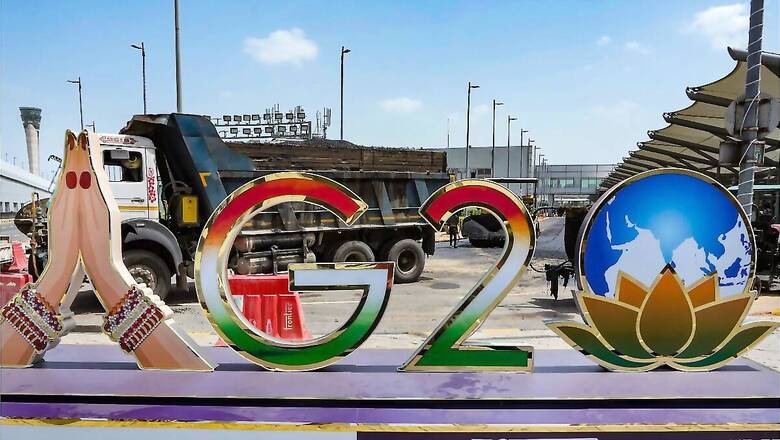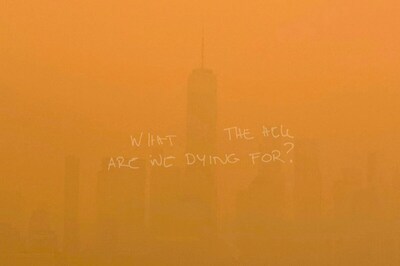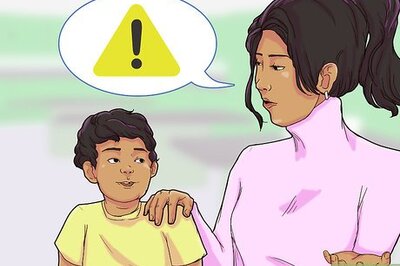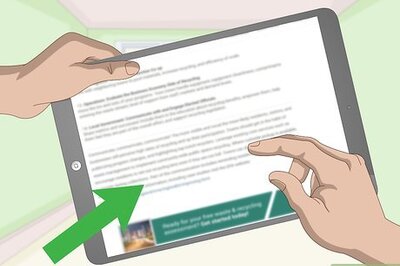
views
India will become a hub of global diplomacy as New Delhi hosts the G20 Summit on September 9 and 10. With its presidency, India has shined a spotlight on disaster risk reduction by forming a working group on it for the first time.
This is one area where many countries have sought to achieve a lot, but have come up empty-handed or with minimal results. The working group on disaster risk reduction (DRR) has met thrice in the last few months and its recommendations will now be tabled at the G20 summit.
What is the DRR working group?
The DRR working group discusses all aspects related to natural disasters – loss of life and livelihood, impact on countries as well as their economies and, most importantly, mitigation, rescue and rehabilitation efforts. After three meetings, the working group set out five key priorities: universal coverage of early warning systems; disaster and climate resilient infrastructure; financing frameworks for DRR; disaster recovery, rehabilitation and reconstruction; and nature-based solutions and ecosystem-based approach for DRR.
Why is India’s DRR push important?
India’s initiative to focus on DRR is a first within the economic bloc. Progress on this will pave the way for collective mitigation and also help the Global South in more ways than one. India can take credit for making the concept mainstream, and has wisely chosen to use G20 to work on this front.
Natural disasters are increasing in frequency and intensity, posing a severe challenge to the world – from raging wildfires in America to earthquakes in Turkey, and from heatwaves in Europe to severe cyclones in India’s neighbourhood. The time to work together for mitigation is now and that is India’s message to the G20, which represents 85 percent of the global GDP, 75 percent of international trade and two-third of the world’s population.
India’s initiative makes all the more sense now if you look at the World Risk Index, in which four out of the top 10 vulnerable countries are part of G20. The combined estimated annual average loss in G20 countries alone is $218 billion, equivalent to 9 percent of their average annual investment in infrastructure.
India is a fast developing country but disasters can push these gains several years back. So, it becomes all the more important to take up the challenge head on and make it a priority to reduce vulnerability to disasters. Disasters, especially natural, are unavoidable but there are ways to minimise their devastating impact. This includes better economic and urban development, climate protection and poverty reduction.
Principal secretary to Prime Minister Narendra Modi, PK Mishra has played an important role in steering the G20 DRR working group. “Over the past few years, in India, we have completely transformed the way DRR is financed. There is now a predictable mechanism for financing, not just disaster response but also disaster mitigation, preparedness and recovery,” he said.
What can the world learn from India?
India is a country with extensive experience in handling natural disasters. Narendra Modi was chief minister of Gujarat when the Bhuj earthquake happened in 2001, which brought him into the thick of disaster management and relief operations.
India’s list of disasters is long: the Bhopal gas tragedy in 1984, Odisha super cyclone and Chamoli earthquake in 1999 among others. These paved the way for the National Disaster Management Bill in 2002, which finally became the National Disaster Management Act in 2005.
In the last few years, India’s approach has changed from basic rescue-and-relief to a more holistic one – seeking to mitigate the effects of disaster even before it strikes. India has pioneered the cause of disaster risk reduction in that sense.
The Modi-led central government was quick to swing into action as soon as it came to power in 2014 with the national executive committee (NEC) on disaster management under the home ministry. The National Institute of Disaster Management came up with the first national plan for disaster management after consulting all ministries and state governments, which eventually became the National Disaster Management Plan 2016.
In 2016, India hosted the Asian Ministerial Conference on Disaster Risk Reduction (AMCDRR), which was attended by more than 55 countries. In it, Modi laid out a ‘10-point agenda on disaster risk management’. In 2017, during the second ‘National Platform on Disaster Risk Reduction’, emphasis was laid on disaster management curricula, capacity building, use of social media and technology as well as working with international partners for disaster mitigation.
Today, disaster management is seen as a mass movement in India. The most recent example will be flooding in Punjab’s low-lying areas, where people rushed to the rescue and voluntarily started working towards relief and rehabilitation. This shows how disaster management is viewed as a social responsibility, which is the sentiment that India wants to take across the world.
Financial management during disasters is an important component of mitigating their impact. Now that the G20 has a working group specifically dealing with DRR, countries will no longer be alone in dealing with disasters. The working group will help countries with a host of tools – risk assessment or modelling; insurance coverage of disaster risk; financial aid and compensation for affected countries, communities and businesses; management of fiscal risk with the help of special bonds.
The Global South, which usually has to fend for itself in times of crises and disasters, will now find the full force of G20 behind it. This is a big win for India as it sets out to integrate the developing and underdeveloped world with the developed bloc.



















Comments
0 comment